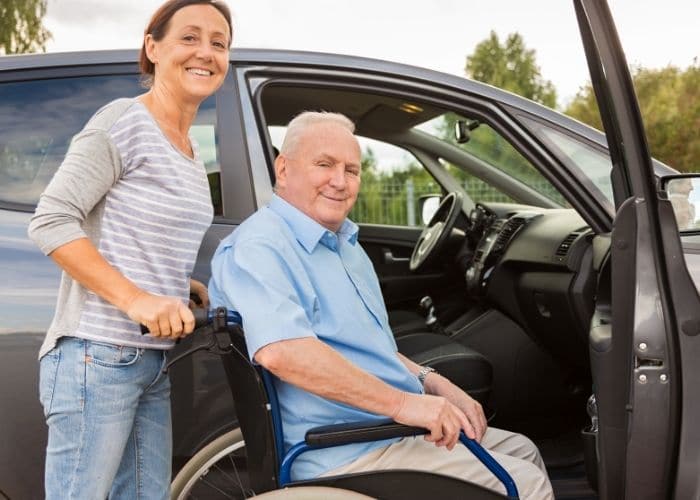


Transportation can be a big part of your role as a caregiver. According to the National Aging and Disability Transportation Center, more than one in five Americans 65 years or older no longer drive. Caregivers have to plan transportation for seniors to attend doctor appointments, pick up groceries, see loved ones, etc. NADTC conducted a 2018 survey and found that 40% of caregivers spend at least five hours arranging or providing transport. While transportation is necessary for your loved one, there will be times when you can’t drive them to where they need to go and that’s okay! If caregivers can’t provide rides, there are many other alternative forms of transportation for seniors.
If you can’t provide a ride for your loved one, here are some transportation options to look into:
Federal, state and local governments offer bus and rail services with fixed routes and set schedules. These systems can offer discounted fares for seniors as well as have accessibility features for those with mobility issues.
Public transit services are ordered by law to offer a “complementary paratransit service” for those unable to wait in regular lines. Riders for Paratransit must meet eligibility standards under the Americans With Disabilities Act (ADA). Paratransit vehicles are usually vans for accessibility. It operates during the same hours with similar routes as public transit.
Demand Response is another shared ride service. Demand Response carries passengers who individually book different pickup points and destinations. The service requires reservations to be made 24 hours in advance.
Ride-hailing
Uber and Lyft can be a convenient choice for your loved one to get point to point. Booking and payment are through the services’ mobile apps. Lyft and Uber offer accommodations to those with mobility issues such as allowing riders to request wheelchair assistance during their booking in some cities.
Taxi fleets in certain communities include accessible vehicles and vouchers to older and disabled riders.
NEMT is a Medicaid benefit that covers transportation to medical appointments. Eligibility rules, types of destinations, and modes of transportation vary state by state.
Some non-profit organizations offer transportation to medical appointments and other destinations. Trips are usually arranged beforehand and may entail a small fee. They can provide door-to-door or door-through-door service if your loved one needs assistance getting in and out of the building.
The following are topics you should ask questions around when contacting and arranging transportation with other services:
The loss of driving privileges can be tough on your aging loved one, however, they shouldn’t let this lead them to believe they have no freedom. Plan and discuss transportation options with them so they know they can always get where they need to go!
1+1 Cares is a referral agency that works for clients and caregivers. We match caregivers with clients and inform them of your requirements. We work for you so you and your loved one can have a safe, enjoyable caregiving experience.
